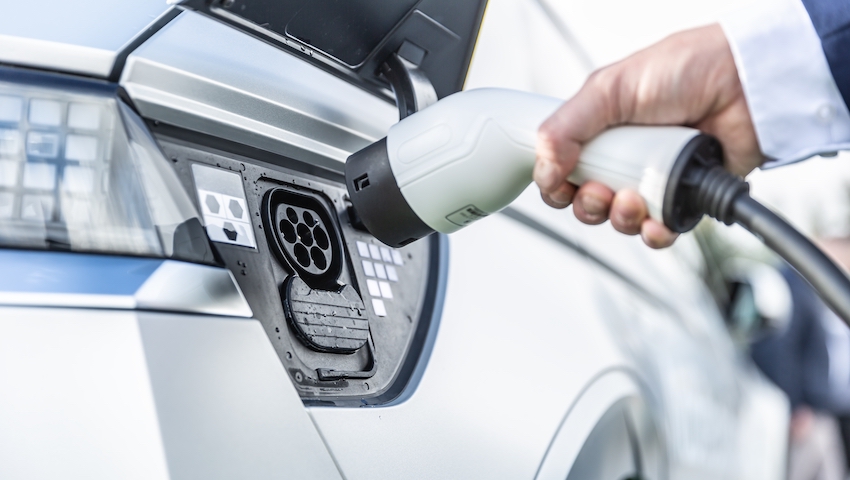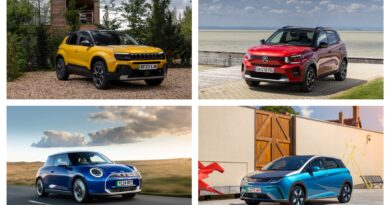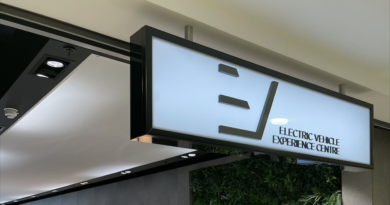What features set EVs apart from standard cars?
Is it range? Is it performance? What makes an electric car better than an ICE vehicle? Hubert Day shares his views on the key benefits of EVs.
Electric vehicles (EVs) are no longer the cars of the future – they’re the cars of today, cropping up more and more regularly on roads all around the world, as drivers seek to play their part in the race against climate change. But there are still some barriers that are making some people reluctant to adopt this new technology. As such, it’s important to improve the sharing of information regarding EVs, to help individuals to make more informed decisions about the type of car they want to drive.
Here, we explore just some of the features that set EVs apart from petrol-powered cars, to highlight the many benefits they can provide to both drivers and the world around us.
Environmental benefits
It’s impossible to ignore the fact that one of the key points of difference between EVs and traditional cars is their environmental impact. With the latter running on polluting fossil fuels, every time you switch on the ignition, you’re adding to your carbon footprint and thus global greenhouse gas levels. EVs, meanwhile, produce no tailpipe emissions when on the road, which is a clear selling point for many drivers interested in switching to electric.
In the UK, the government has imposed a ban on the sale of new petrol and diesel cars, which is set to be enforced in 2030. With this deadline on the horizon, EVs are better positioned to provide longevity to drivers, who could future proof their household’s fleet by making the switch. EVs currently stand as the most viable alternative to petrol-powered vehicles, which are steadily being phased out by governments across the world.
Modern technology
Leading EV brands in the market are continuing to push the technological boundaries of their products. For example, Tesla has rolled out a software update that enables dog owners to leave their furry friend in the car with the air conditioning still running, whilst the touchscreen displays a message informing passers-by that the driver will be back soon.
Meanwhile, EV charging is constantly evolving, and the premium models on the market are making the most of the latest innovations in this field. For instance, the highly-rated Nissan Ariya includes a smart charging system, which allows drivers to schedule home charging through an app. This gives owners the flexibility to plan their charging routine around fluctuations in electricity prices, helping them to save money every time they top up.
As reported in this guide by Autotrader about the sustainability of electric cars, 72% of respondents in one survey agreed that charging an electric car takes too long. And whilst concerns around charging remain a barrier to EV adoption for some, features like this will only make it easier for drivers to top up the tank, and encourage more people to make the switch.
Less is more
Whilst, as we’ve explored, there are certainly state-of-the-art features in the most premium EVs on the market, it’s a common misconception that tech is crammed into these cars for the sake of it. Particularly when we look under the bonnet, you will find far fewer moving parts to an EV’s internal makeup compared to a petrol/diesel vehicle. With fewer components, there is less need for regular maintenance tasks to be performed, and less is likely to go wrong. This not only can help to save money on expensive servicing costs, but it can also help to improve the safety and reliability of your motor.
With a smaller engine, and fewer moving parts, you will also typically find that EVs are more spacious than their petrol-powered counterparts. This helps to provide an enhanced level of comfort for both drivers and passengers, particularly on those longer drives.
What’s right for you?
EVs won’t be right for everyone straight away – even if you decide you want to switch to electric, there will likely be a period of adjustment. But whether you’re thinking about making a change now, or may be interested in investing further down the road, it’s useful to know the key features of these contemporary cars to help you decide whether or not they could work for you.






